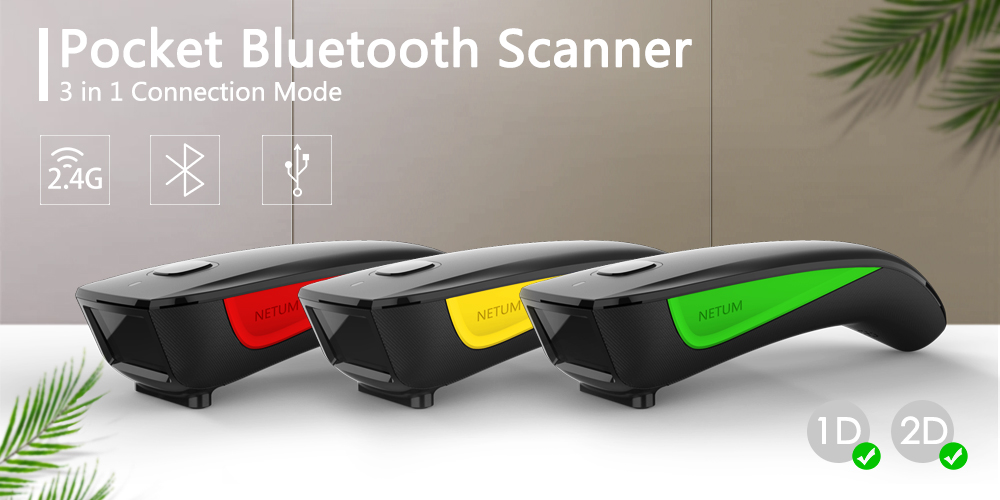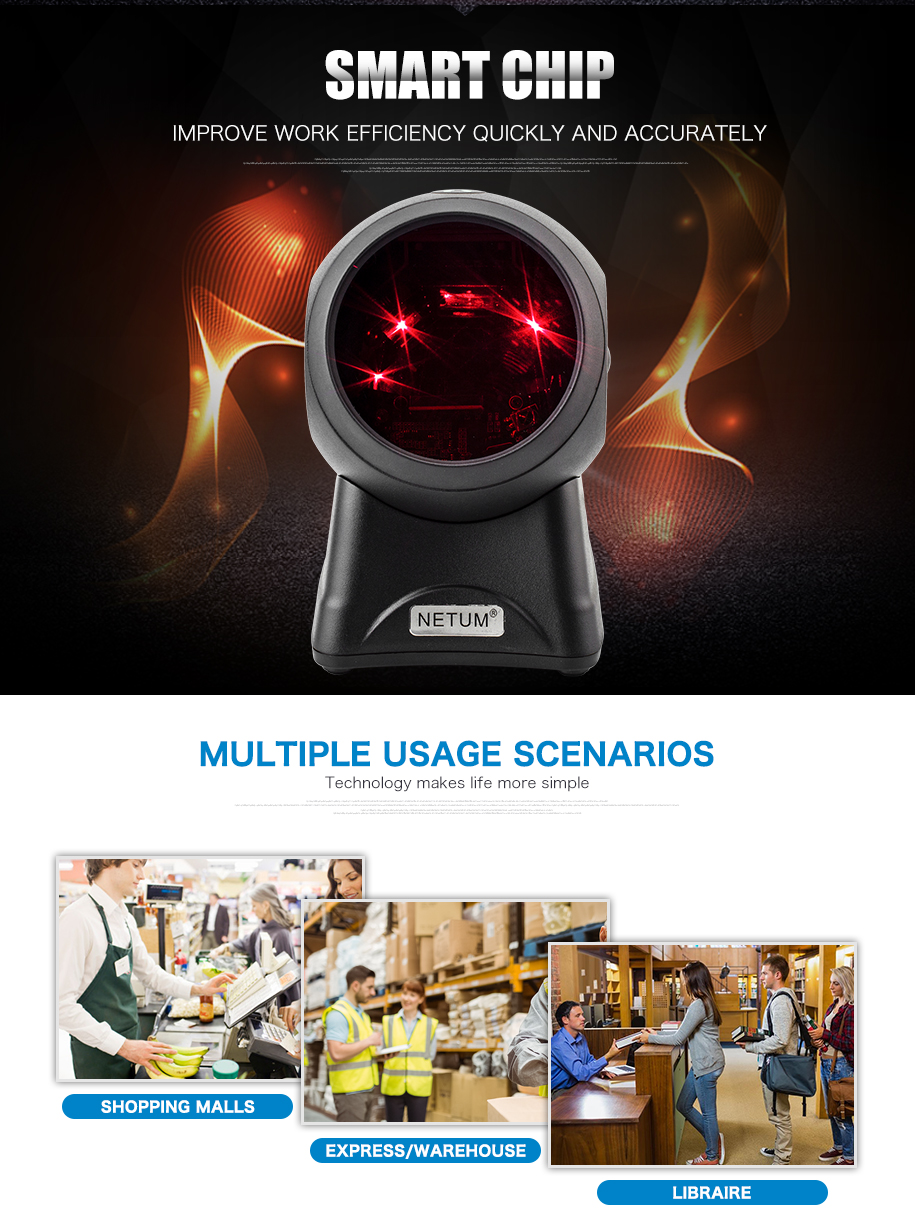In the era of digital management, barcode scanners have become indispensable efficiency tools for fields like warehousing and logistics, retail stores, and healthcare offices. Faced with a wide variety of wired and wireless barcode scanners on the market, many users often struggle to decide which one to choose. Below, we compare them from multiple perspectives to help you find the best fit.
Feature Comparison
Wired barcode scanners connect directly to devices via interfaces like USB or PS/2. They have a simple structure, rely on physical cables for data transmission, and typically lack internal batteries, drawing power from the connected device. Wireless barcode scanners, on the other hand, connect via Bluetooth, 2.4G wireless, or Wi-Fi, eliminating the need for cables. They feature built-in rechargeable batteries, and some high-end models even support offline storage. Their ergonomic design makes them convenient for handheld and mobile use.
Differences in Usage Scenarios
Wired barcode scanners are suitable for high-intensity work situations at fixed workstations. For example, on a factory assembly line, products pass through scanning points at fixed locations. Wired connections ensure stable data transmission without the risk of delays, meeting the needs of continuous scanning over long periods of time. Fixed supermarket checkout counters are another typical scenario, where the scanning range is limited to the checkout area. Wired devices can avoid wireless signal interference and ensure real-time data synchronization.

Wireless barcode scanners are a lifesaver for mobile operations. In warehouse inventory work, workers must move between shelves. With a scanning range of 10-50 meters, wireless barcode scanners can easily scan barcodes on items at high or distant locations. During supermarket shelf inspections, store clerks can scan and sort items while walking, eliminating the need to frequently return to their computers, significantly improving work efficiency. In mobile checkout scenarios, wireless barcode scanners allow transactions to be conducted anywhere, providing more convenient service for customers.
Cost Considerations
Wired barcode scanners are typically 30%-50% cheaper than wireless models, making them a cost-effective option for small businesses or individual merchants with limited budgets. However, from a long-term perspective, the hidden value of wireless devices cannot be ignored. Regarding labor costs, wireless devices reduce employee travel time, indirectly reducing labor waste. Regarding scalability, a single wireless barcode scanner can be paired with multiple terminals, such as tablets, mobile phones, and computers, flexibly adapting to business growth needs. Regarding maintenance convenience, wireless devices are immune to interface wear, whereas issues like aging cables and loose connectors in wired devices can lead to increased repair costs.
In terms of stability, wired barcode scanners, due to their physical connection, are virtually immune to environmental interference, making them suitable for scenarios requiring extremely real-time data, such as financial document scanning and medical sample data entry. Although wireless barcode scanners may occasionally experience brief disconnections due to signal obstruction or long distances, mainstream brands have significantly improved their stability through optimized anti-interference technology, making them suitable for most common scenarios.
In terms of flexibility, wireless barcode scanners offer significant advantages, allowing them to scan while on the go, adapting to a variety of complex mobile work environments. Wired barcode scanners are more suitable for fixed-point operations, but long cables can create tangles and limit operational flexibility. In terms of battery life, wired barcode scanners offer no power concerns and can operate around the clock. Wireless barcode scanners typically offer battery life between 8 and 48 hours, and some models support Type-C fast charging to ensure uninterrupted operation.
In summary, if your work environment is fixed and you're looking for low cost and ultimate stability, a wired barcode scanner is the best choice. If you require frequent mobile work and prioritize efficiency and flexibility, a wireless barcode scanner is a better choice.


